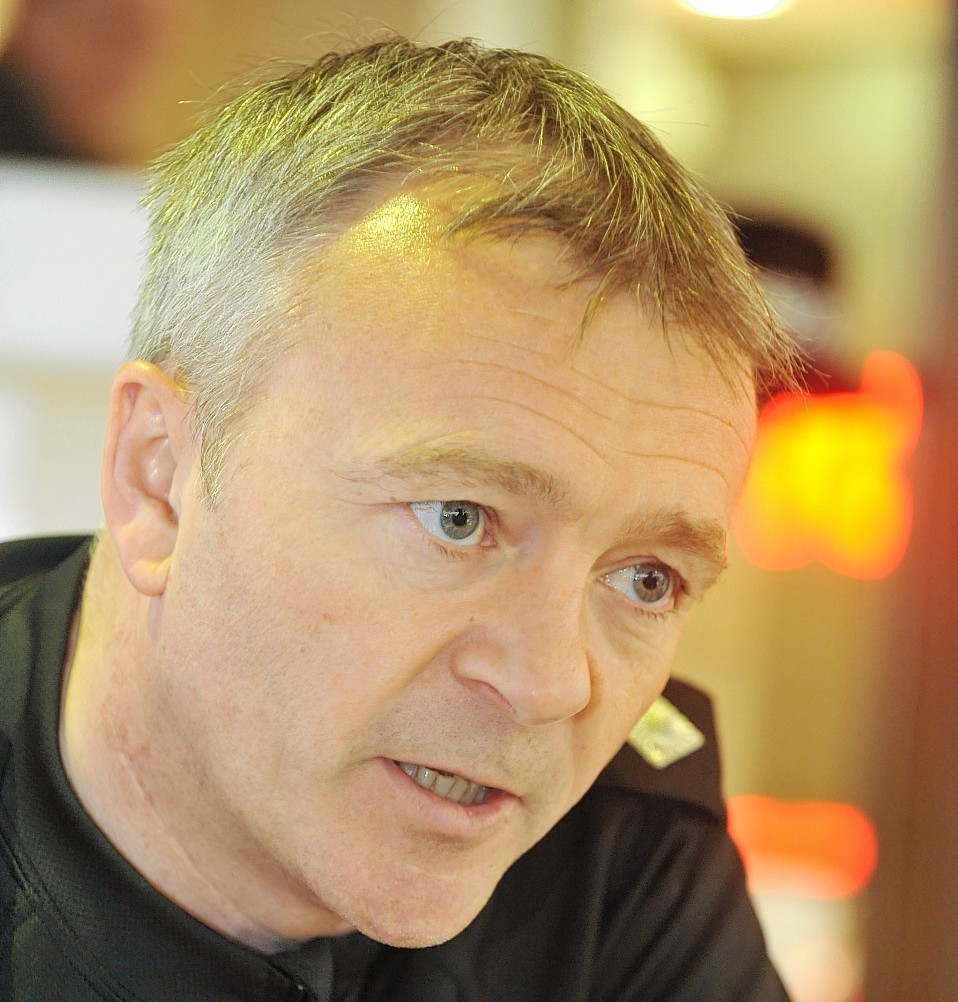The north’s most senior police officer has warned the Highlands are not immune to terror attacks.
Chief Superintendent Julian Innes revealed a dedicated team of officers are working round-the-clock to snuff-out any potential threats.
It emerged earlier this year that a young man from Inverness had been close to travelling to Syria to fight for Islamic State before police and local religious leaders stepped in.
He had been radicalised while studying English in London.
Today – for the first time – Mr Innes will give a private briefing to councillors on the work being done to keep communities in the region safe and the scale of the terrorism issues affecting the north.
In an exclusive interview with the Press and Journal, he said he did not want to spread alarm.
But he added that Highlanders had to be “realistic” that the north was no different from the rest of the country.
Mr Innes said: “The important thing to realise for the Highlands and islands is that the level of threat for terrorism has not changed, so the way we’re going about our business hasn’t changed.
“We put a lot of people into preventing terrorism in this area and we’re working quite hard to make people aware there is the potential for terrorism anywhere, and that includes the Highlands and islands, we’re no different from the rest of the country.
“It’s not about causing alarm among people but it is about being realistic, so an example of that will be on Thursday afternoon we’ll be briefing elected members in this area in relation specifically to terrorist incidents and other things they could support us with.
“We probably wouldn’t have done that three or four years ago so we are being more open and more inclusive.
“Because that’s not a public forum we will go into a little more detail and be a little more specific in sharing with a level of detail which is appropriate for their roles in communities.”
Mr Innes added: “There is more work going on the prevention agenda than anything else I can remember in all of my years of service.
“We have people here dedicated to it, it’s their day job and I firmly believe it’s the right thing to do.”
The case of the young Inverness man who was feared to have been close to be travelling to Syria emerged at a council meeting earlier this year
Preventions and interventions officer Constable Stuart Mackellaig told councillors that while in London the man “was almost radicalised to a point where he was not taking into consideration the wishes of his family, or consideration of what he thought was normal behaviour”.
The man has since returned to his family.
Mr Innes said: “That type of behavioural change in individuals can happen anywhere in Highlands and islands and anywhere in Scotland.
“What’s important is that if someone has concerns then they should have a conversation with us or they have a conversation with one of our partners who in turn could have a conversation with ourselves.
“If we find out about that kind of radicalisation or the potential for radicalisation or any type of behavioural change it gives us the opportunity to prevent things from happening.”
